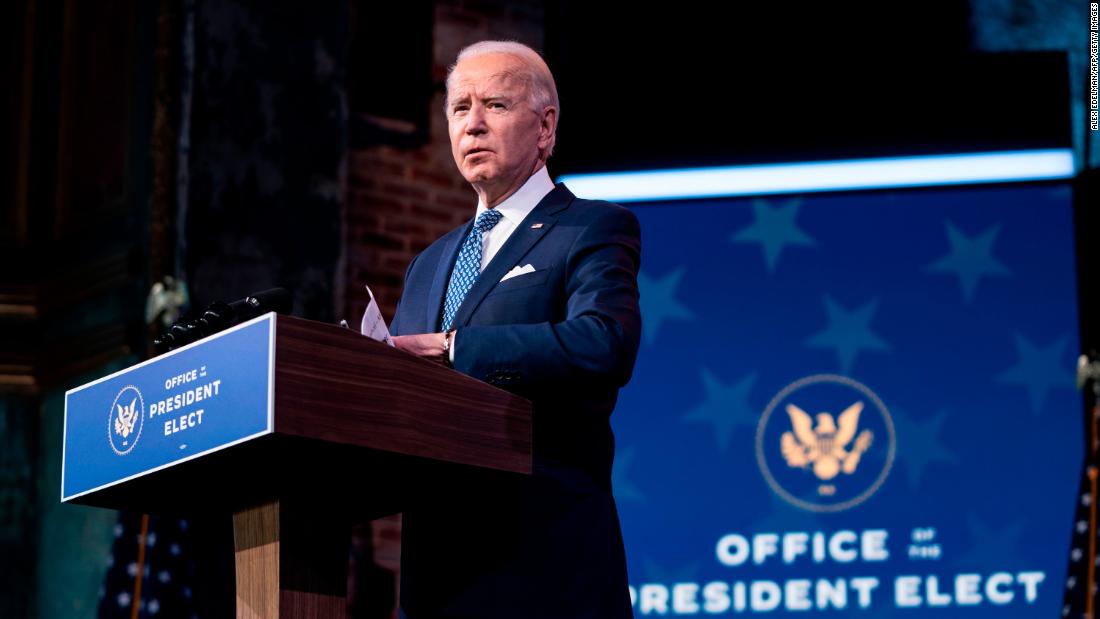
We can make sure the talent does not go to waste. In the first 100 days of the Biden administration, we can help them and the country out by reimagining national service for the Zoom era.
Over the next four years, our country can give 1 million college students a paid internship in federal, state or municipal government, plus a chance to compete for a college scholarship in exchange for their service.
Pew polling shows trust in government at near-record lows, and interest in public service is also eroding. America's poor response to the pandemic and concerns about the abuse of executive power have driven many young prospects away. Not to mention a walk around any college career fair lays bare how unwelcoming government service seems to be compared to an apparently endless set of shiny opportunities in the private sector.
Analysis of government data shows that just 6.7% of federal employees are under the age of 30 — compared with 20.6% of those in the employed labor force. That's even more problematic when you consider that about one-third of federal workers will be eligible to retire in the next five years.
We need talented young folks in government, not only to replace those coming to the end of their careers of service, but also to bring new skills that will help the country confront a wide array of public challenges and opportunities. And this next generation has a unique opportunity to make a difference for our country and the world by becoming public servants.
President-elect Biden has a responsibility to reinvigorate the government by recruiting young talent.
Here's what he can do right now:
The administration should greatly expand its efforts to encourage talented college students to apply for paid internships at government entities. The program could start in 2021 with a smaller pilot program in a few target states and cities, with a view toward establishing a national presence. The experience would be designed to show interns the interesting and rewarding opportunities government work offers — namely, the chance to take on engaging, complex problems and have a direct impact on society.
The program could include a mentorship component, pairing experienced leaders with prospective new talent, aimed at guiding participants in their work and encouraging and helping them pursue a career in public service. It could also include a speaker series that would feature rising leaders talking about how they developed their careers in government. For the duration of the administration, the government could arrange about 20,000 internships a month at a time — for example, 400 dedicated to federal, state or city government in each state if distributed evenly.
Second, the program could be expanded through competition, creating scholarships or student loan forgiveness on a needs basis for select interns who demonstrate a passion and aptitude for public service, in exchange for a work commitment in government service after graduation.
Third, given their prior experience, participants in the internship program could have fast-tracked access to compelling projects upon completion of their college degrees — posts that might not otherwise be assigned to entry-level employees. Ideally, the internship and post-graduate work experience would inspire these young professionals to carry on in the civil service.
To be truly successful, the administration or Congress will need to put resources behind the plan and adopt policies that make it easier for federal agencies to offer full-time jobs more quickly to talented interns without having them go through the lengthy competitive hiring process.
If Congress creates such a program and appropriates the internship wages, Schmidt Futures volunteers to provide funding for the startup administrative costs needed to organize the program on a philanthropic basis. The nonprofit Partnership for Public Service would provide initial staff and infrastructure to help facilitate the recruitment, selection and matching operations for the federal component to ensure that participants are placed in internships.
Schmidt Futures also would support up to 100 new college scholarships or debt-forgiveness plans per year — 400 at a time given the likelihood of four-year degrees — and we would welcome partners to grow the scale of the program.
Challenges like protecting the population against pandemics and unwinding centuries of racial injustice will not be solved in the span of a single presidency, or even within a single generation. To tackle these and other challenges, the American government — and its ability to attract innovative talent — has to be built for the long haul. And we have to start building it now.
"Give" - Google News
December 29, 2020 at 08:28PM
https://ift.tt/2JviOIk
To recharge the country, Biden should give 1 million college students paid government internships - CNN
"Give" - Google News
https://ift.tt/2YqGX80
https://ift.tt/2YquBwx
Bagikan Berita Ini














0 Response to "To recharge the country, Biden should give 1 million college students paid government internships - CNN"
Post a Comment